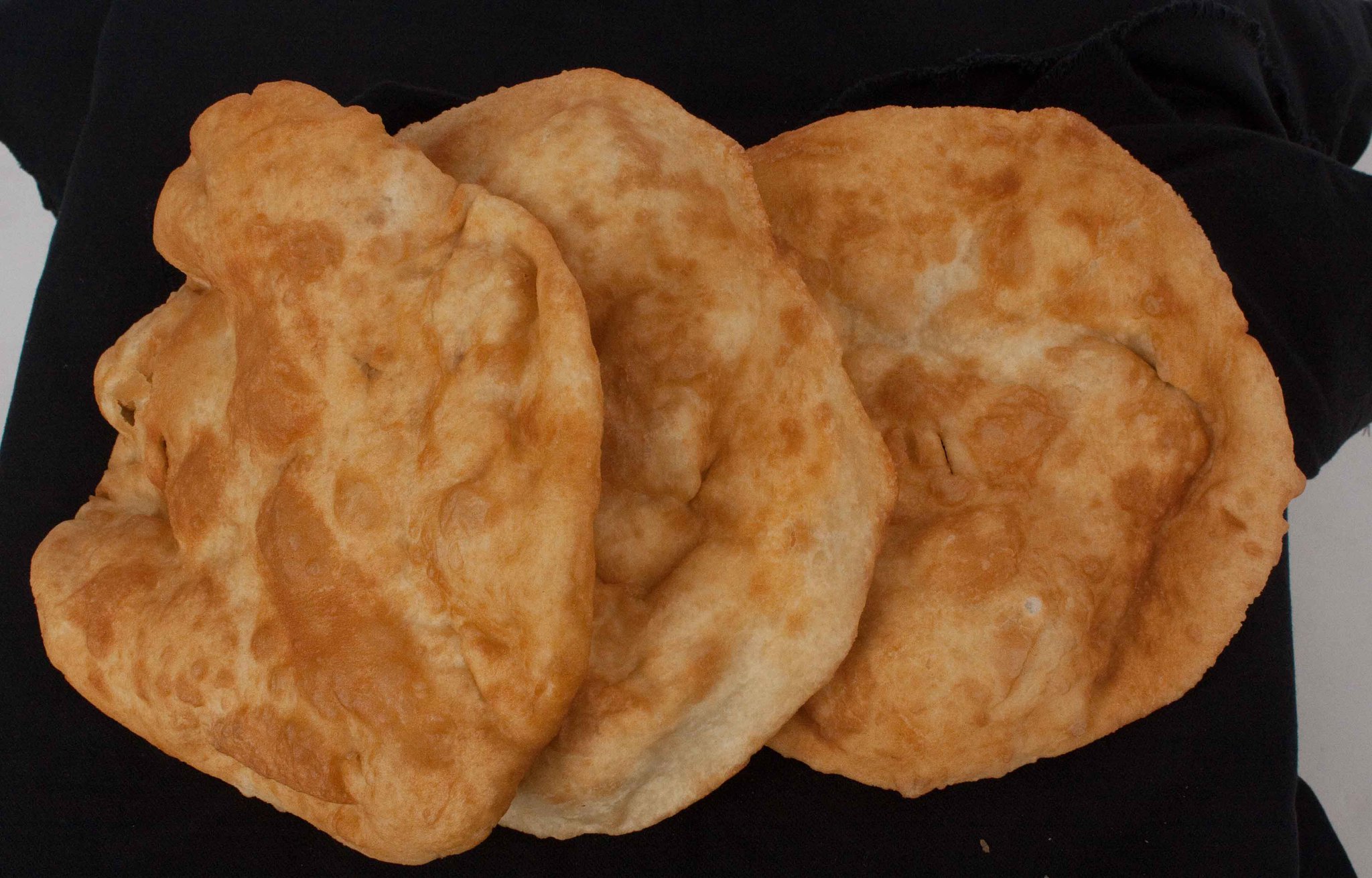
- Details
- By Neely Bardwell
This week, we asked Native News Online social media followers the age-old question: Who makes the best frybread in Indian Country?
Read on to see what they had to say, and make sure to follow us on Facebook, Twitter, Instagram, TikTok, and Linkedin to make sure your voice is heard!
The following answers have been published as written.
So the admins got up this morning and thought, "hey, let's start a fight."
The ones made by Grandmas and Aunties
Navajo bread has always been my favorite!
Any frybread cooked over an open fire! Love that smoky taste!
NOT CAUCASIAN YEAST BREAD. 🤩
Good ol traditional baking powder. Only the blessed natives can ace a good soft tasty recipe!
The one with heart and soul put into it!
San Carlos Apache with a dash of Pima (O’odham) and sprinkle of Paiute Shoshone!
Kainai Blood women make the best fry bread
Zotigh/Wolf frybread from Lawton, OK is THEE best frybread in Indian Country.
This is a trick question. Everyone's grandma makes the best frybread
Choctaw fry bread, esp being sold this week at the Choctaw Indian Fair in Mississippi!
White Earth Rez has the best frybread
– Bee
Your GF makes the best frisbees
Bannock for the win!
My sister's! They are the best break makers! I love eating more than 1 piece each time I see those fluffy fistful of all her works! Lela Waste!!!
The stuff that my wife makes.
Ojibewas got the best
GG’s grubs has the best frybread
Meskwaki frybread
Isn’t any answer wrong if it isn’t the mom in Smoke Signals?
If the dough is kneaded 'N flapped, and fried by Indigenous hands it's all good stuff
More Stories Like This
Native News Weekly (August 25, 2024): D.C. BriefsUS Presidents in Their Own Words Concerning American Indians
Native News Weekly (January 18, 2026): D.C. Briefs
Federal Judge Orders ICE to Halt Use of Pepper Spray, Arrests of Peaceful Protesters in Twin Cities
Tunica-Biloxi Cultural Leader John D. Barbry Walks On
Help us defend tribal sovereignty.
At Native News Online, our mission is rooted in telling the stories that strengthen sovereignty and uplift Indigenous voices — not just at year’s end, but every single day.
Because of your generosity last year, we were able to keep our reporters on the ground in tribal communities, at national gatherings and in the halls of Congress — covering the issues that matter most to Indian Country: sovereignty, culture, education, health and economic opportunity.
That support sustained us through a tough year in 2025. Now, as we look to the year ahead, we need your help right now to ensure warrior journalism remains strong — reporting that defends tribal sovereignty, amplifies Native truth, and holds power accountable.
 The stakes couldn't be higher. Your support keeps Native voices heard, Native stories told and Native sovereignty defended.
The stakes couldn't be higher. Your support keeps Native voices heard, Native stories told and Native sovereignty defended.
Stand with Warrior Journalism today.
Levi Rickert (Potawatomi), Editor & Publisher


